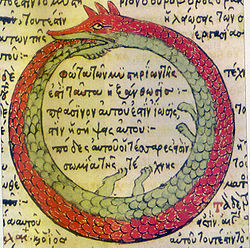What do you think?
Rate this book


204 pages, Paperback
First published January 1, 1961
…I couldn’t seem to find the right room – none of them had the number designated on my pass. First I wound up at the Department of Verification, then the Department of Misinformation, then some clerk from the Pressure Section advised me to try level eight, but on level eight they ignored me, and later I got stuck in a crowd of military personnel – the corridors rang with their vigorous marching back and forth, the slamming of doors, the clicking of heels, and over that martial noise I could hear the distant music of bells, the tinkling of medals.
I had suspected for some time now that the Cosmic Command, obviously no longer able to supervise every assignment on an individual basis when there were literally trillions of matters in its charge, had switched over to a random system. The assumption would be that every document, circulating endlessly from desk to desk, must eventually hit upon the right one.
An endless white labyrinth lay in wait out there, I knew, and an equally endless wandering. The net of corridors, halls and soundproof rooms, each ready to swallow me up…
“Only a worm can play the worm…”





”A priest? You turned me over to Major Erms! You only wear a cassock to hide the uniform!”
“And do you only a wear a body to hide the skeleton? Try to understand. I am hiding nothing. You say I betrayed you. But everything here is illusion: betrayal, treason, even omniscience - for omniscience is not only impossible, but quite unnecessary when its counterfeit suffices, a fabrication of stray reports, allusions, words mumbled in one’s sleep or retrieved from the latrines… It is not omniscience but the faith in that matters.”
So . . . I had considered myself the center of the universe, the bull's-eye, so to speak, for all the slings and arrows the Building had to offer—and all along I was nothing, just one of a series, another copy, a stereotype, trembling in all the places my predecessors trembled, repeating like a record player exactly the same words, feelings, thoughts. My melodramatic actions, the sudden impulses, false starts, surprises, moments of inspiration, each successive revelation—all of it, chapter and verse, including this present moment, was in the instructions—no longer my instructions, they weren't made for me . . . So if this was neither a test nor a Mission, nor chaos—what was left? ... Were they all crazy? Were they out to make me crazy too? Then everything would be fine, for if everyone's crazy, no one's crazy . . . But where was it all heading? (124)5 stars out of 5. Yeah, it's a little bit juvenile, mostly goofy, and very over-the-top. And the whole "paper blight" introduction didn't really need to be there. But if you think about it you'll realize it's really a secretly coded message about life and living in an over-informed, media-saturated society (I swear). And all that stuff is right up my alley.